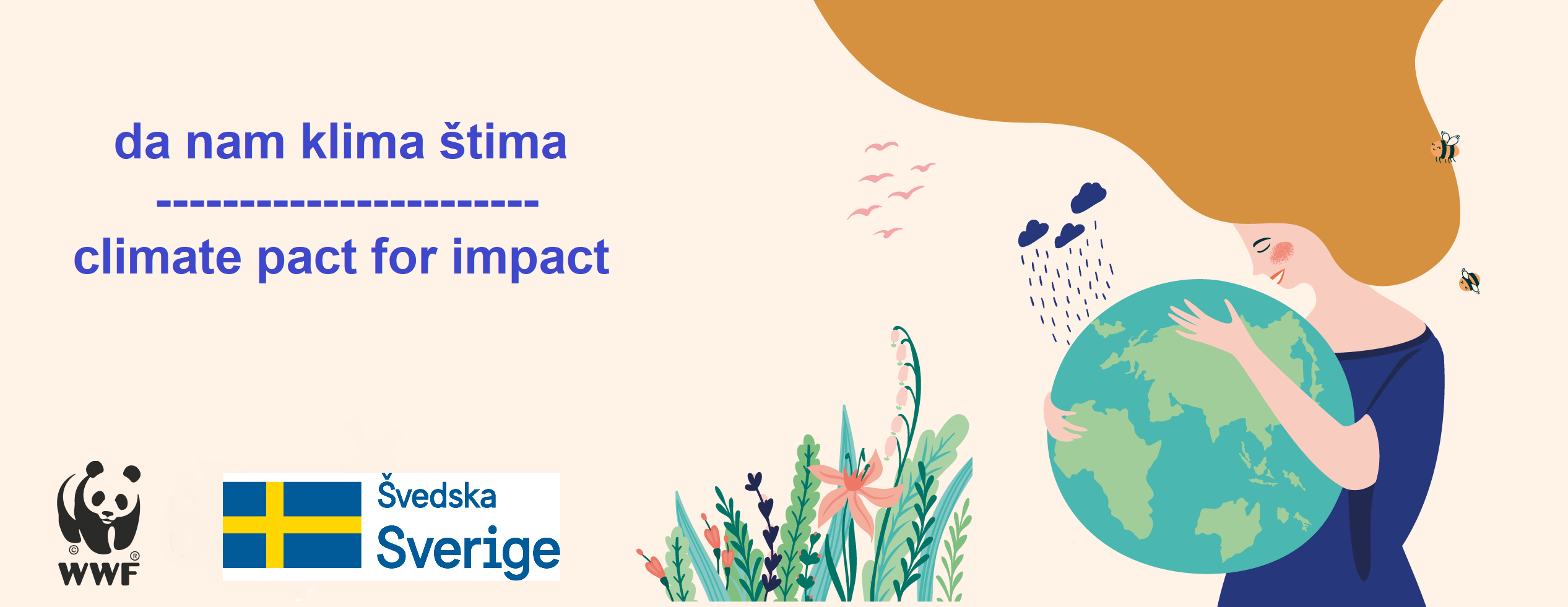All the stories originating in this CINS school, seven of them in total, focused on environmental protection and climate change themes. The best authors have been awarded equipment which will help them in their journalistic work.
“Environmental themes in the broadest sense, especially themes pertaining to the increasingly noticeable consequences of climate change in our country, have reached the regular repertoire of public topics in our society. By supporting CINS’ investigative school and giving awards to the best stories, we are supporting the education of journalists who will, for the public, be able to investigate and report on them in a committed and competent way,” said Ana Davičo, project officer for communication at WWF Adria.
In mid-2020, 84 hopefuls applied to learn the techniques of researching, providing accompanying content for and checking investigative stories from CINS journalists. Twenty of them were selected for the program. After training in September 2020 and several months of mentorship by CINS journalists and editors, seven stories were published this past March, three of which stood out as the most important ones.
Aleksandra Popović from Belgrade received an award for investigating the illegal construction of holiday homes in the Uvac Special Nature Reserve. Instead of stopping the builders in their endeavor, the authorities are allowing them to legalize the holiday homes. Popović says there were moments when she thought she would not be able to finish the story, but that she was very happy in the end – in spite of the pressures that followed.
“That other side of the coin came, when you are indirectly contacted by the people who are affected by that subject. At that moment it’s really not easy, that was the first time I encountered it. I can say there was a kind of fear, like ‘What am I going to do now,’ but I knew that the whole office was behind me, that I had evidence for all the information I had used in the story,” says Popović.
Also among the award-winning stories is the one about air pollution in Beočin, caused by the operation of the cement plant in the small town. The author of the story is Aleksandra Mitrović. She says that it was important to her to work on this story because she wanted “to be a voice for those who due to constraints cannot talk about the environmental problems” in their place of residence.
“The most interesting experience for me was the research itself, gathering documents, talking with the local population and finally fact-checking. What I will remember the most is the end of the story, when everything has been gathered, when the story has to come alive. That was when I was very happy. Even though working on this story took a long time, months, each month meant a lot to me and I always learned something new – not one of them was the same,” she underscores.
The story by freelance journalist Mina Delić titled Wood Industry’s Profit Before Natural Floodplain Forests also won an award. In her research, Delić focused on the disappearance of forests in the Tisa floodplains, instead of which plantations of fast-growing hybrid trees are grown in order to be ready for cutting and sale as soon as possible. She also showed that this increases the danger of flooding and other consequences of climate change.
This article was created with the support of WWF Adria-Serbia in the project titled Climate Pact for Impact financed by the Government of Sweden. The sole responsibility for the content of the article lies with the author and does not necessarily represent the views of WWF Adria-Serbia or the donors.


What do you think